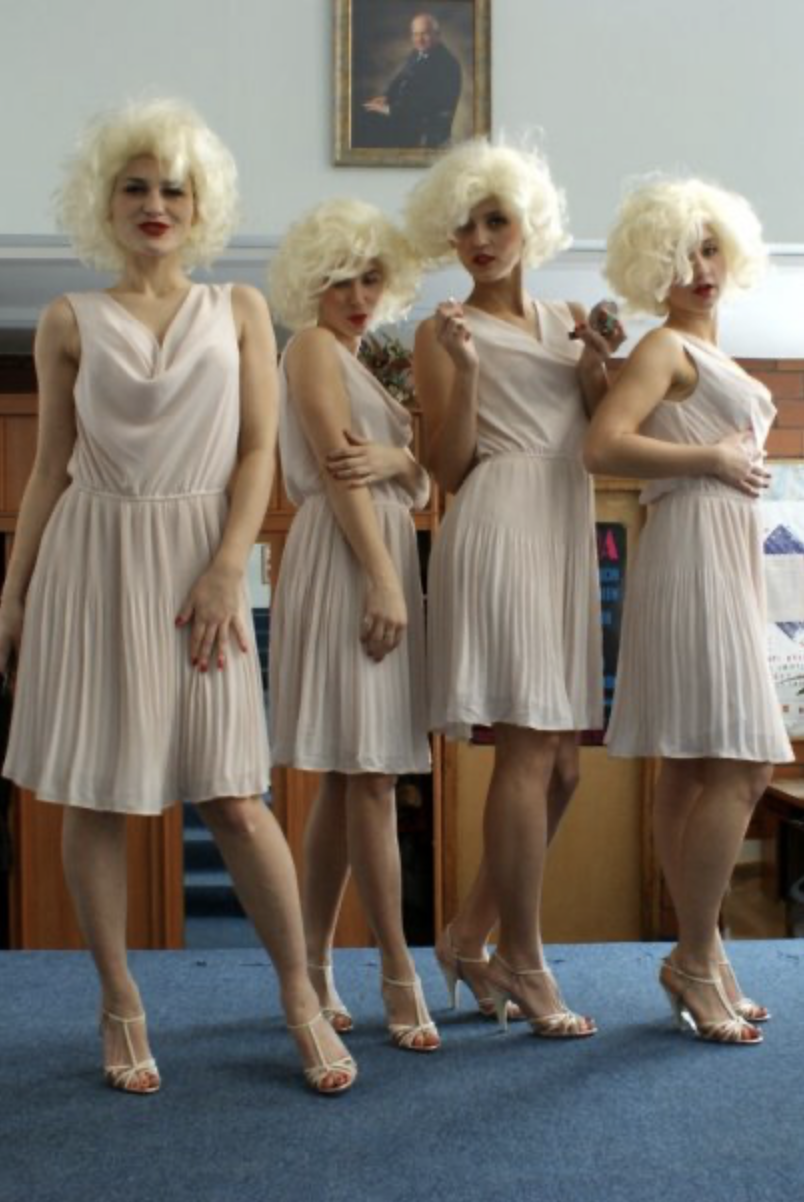About the beginnings and non-obvious alliances
TERAZ POLIŻ artists took part in Halina Machulska’s birthday celebrations wearing the outfits in the picture. The artists sang Happy Birthday to her in the auditorium of the Astronomical Observatory of the University of Warsaw, performing a pastiche of Marilyn Monroe’s legendary performance at John F. Kennedy’s birthday party. This time, however, the women were performing it to honour another woman.
At the time, Machulska, a well-known actress and director, was also the headmistress of the acting school where TERAZ POLIŻ was created, born out of a protest against the marginalisation of female students in their work on the diploma play. Katarzyna Niedurny described the story as follows:

‘Despite the fact that there were a dozen female students and only three male students in the class, Jan Machulski decided to produce a play in which the two main roles are played by men. The two women cast in the play in the roles of a barmaid and a prostitute, who was unhappily in love, only had a few lines. The director addressed the students’ doubts about the gender-based role division by saying, “Girls, don’t worry, we’ll have doubles.” The idea of self-organising and creating the conditions for ourselves to perform a play in which each of the female students would be able to perform on stage was born out of anger.’
The debut performance of TERAZ POLIŻ called “Eight” was created thanks to the intervention of Machulska, who supported the students’ initiative and allocated a small budget for its implementation. And so the senior actress became the first ally of TERAZ POLIŻ. Although Machulska did not identify herself as a feminist, and her views on the role of women in society were significantly different from those held by the founders of the collective, she had values important to them in her everyday educational activities, supporting young female artists entering the industry. Therefore, despite the differences that divided them, TERAZ POLIŻ valued this non-obvious alliance of female artists from different generations and with different political views.

